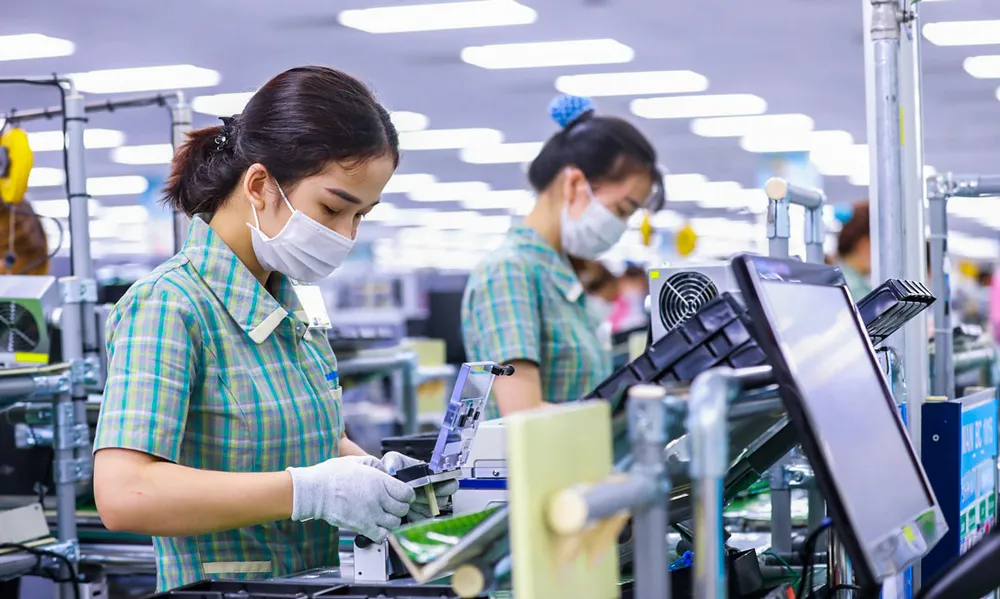
Mr. TRAN BANG VIET, General Director of Dong-A Solutions, spoke with Saigon Investment and explained in detail the drastic effects of the current anti-pandemic measures on foreign investments and projects.
JOURNALIST: - Sir, according to the latest report of the World Bank, even when the Covid-19 pandemic wave began to get too complicated, Vietnam still attracted USD 2.4 bn in registered FDI capital, which was up 65% over the previous month. However, foreign business associations wrote in a letter to the Prime Minister that Vietnam is missing out on investment opportunities that may be lost forever. What are your comments on these two contradictory statements?
Mr. TRAN BANG VIET: - The report of the World Bank is only about registered capital and disbursement, but not the future. However, the contents of the letter sent by foreign business associations to the Prime Minister needs immediate attention, because these enterprises have been operating in the Vietnamese market for some time. So it is clear that these are two different viewpoints, but not necessarily contradictory issues.
In the report of the World Bank, it is necessary to review the proportion of investment enterprises. Frankly, a large market like Vietnam is still very attractive as it is the 15th largest in the world in terms of population, and the younger percent of population will still dominate for the next ten to fifteen years, especially for consumer products. Young people like to shop, spend, and even spend their savings for the future, so the development room for the Vietnamese consumer market continues to be very large.
In addition, Vietnam is still a country with great potential for economic development, so it will have great room, a strong wave of restructuring, and rebuilding the economy after the pandemic, with Government infrastructure investment stimulus packages. Some industries will benefit in this, such as construction, basic materials, and energy. This will also attract the attention of foreign investors in related fields. In any case, the registered capital is just registration and not a long term commitment.
As for the assessment of foreign business associations in Vietnam, we must pay attention to what they have to say. During the global pandemic, the attractiveness of the investment environment in Vietnam as a manufacturing country weakened a great deal, when once it was an important link in the supply chain of the world economy. In fact, it was not until foreign business associations made the same comments in the letter to the Prime Minister, that we were warned of Vietnam's investment environment which is now unable to keep up to its earlier competitive advantage and edge for many reasons.
About two weeks ago, a Japanese newspaper reported that many Japanese enterprises are planning to withdraw orders from Vietnam because their supply chain in the world market is badly disrupted. In the past, many Japanese and German enterprises had withdrawn from China and gradually moved to Vietnam and other countries. At that time, Vietnam remained the top priority, but now a percentage of these enterprises do not want to withdraw from China anymore. Parts of the current orders are shipped back to China, and the other parts are still in Vietnam, but there are more options from other countries. Vietnam is certainly losing many vital opportunities.
At the end of last year, when Vietnam had very good anti-pandemic results, we were classified in the group of 5 beneficiary countries. However, according to Nikkei assessment nearly a month ago, Vietnam's anti-pandemic effectiveness has greatly influenced foreign investors' investment decisions in a negative way.
- Sir, do we need to take into account a worst case scenario that foreign enterprises will move factories to other countries in the region?
- I think the relocation of factories of FDI enterprises is less likely. However, one thing that needs to be recognized is that many plans to boost investment are now being stalled indefinitely. Enterprises that I know had previously made investment plans to increase capacity by 20% to 30% or even double it, but now they do not want to invest anymore. Yet, some factories operating at 100% earlier, or even over 100% capacity, now may not choose to withdraw from Vietnam but gradually reduce capacity to 60% to 70%. This will gradually decrease the importance of Vietnam in the world supply chain. At the same time, it also affects the supporting industries in the supply chain across many localities.
During last year's pandemic, Vietnam benefited a lot when many investors fled China to move to other countries, including Vietnam. At that time, Vietnam benefited a lot from cash flow, import and export. However, in this wave of the pandemic, FDI enterprises are complaining about Vietnam's excessively strict anti-pandemic methods, causing a slowing down of all their operations. If we are only a few weeks to a month apart, they still accept with affection and trust, but we have stretched it for far too long. Even if they sympathize, they cannot accept continuing to bear the burden of such high costs. The longer this phase continues, the more they lose.
- Sir, in your opinion, what should be done to retain FDI enterprises and welcome new investment waves after the pandemic is finally over?
- In my opinion, the solutions offered by foreign business associations in Vietnam are very clear, concise, and convincing. State management agencies should carefully consider these proposals. If we successfully fight the pandemic, and everyone’s hopes are pinned on this, things will gradually return back to normal, and Vietnam will again be a bright spot for foreign investment. However, we need to take this opportunity to improve the investment environment so that some points are made better and more attractive for foreign investors. There is still a belief that some state management agencies in some localities have not really done enough to welcome foreign investment. If we do not improve, we will lose this once-in-a-hundred-year opportunity for sure.
- Thank you very much.




















